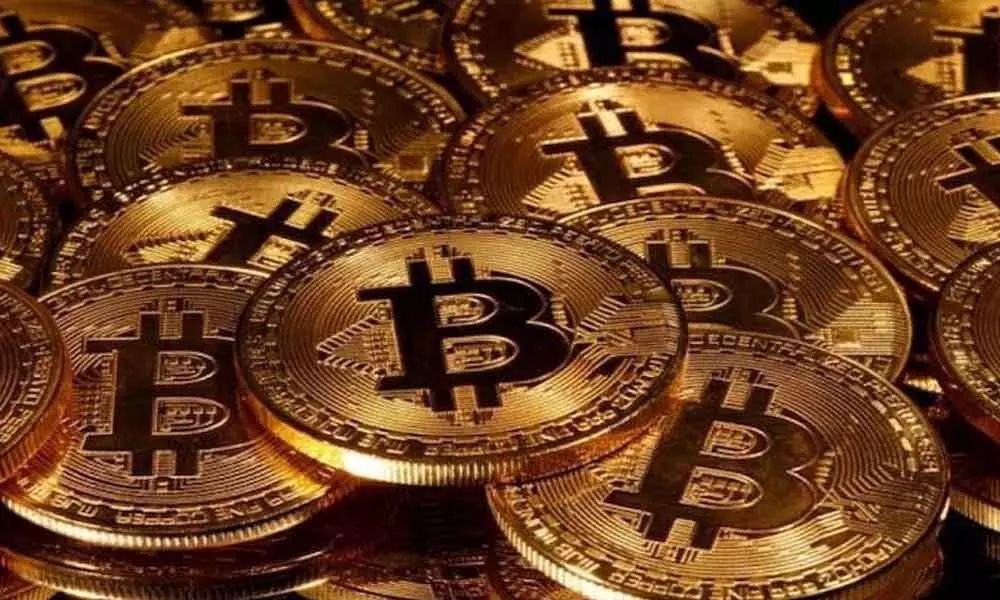Is it advisable to invest in bitcoin ETF?

international hacker’s bitcoins worth 414.5 crore sold by RTC founder
Investing in BTC is relatively more stable than other listless currencies that are being offered, from the risk perspective
Last week has seen some historic happenings in the financial markets. No, I'm not commenting about the newer equity highs by the world indices, but the launch of crypto based ETF (Exchange Traded Fund) approved by the SEC (Securities Exchange Commission), US. The ProShares bitcoin strategy ETF (BITO) debut is significant because it kind of marries the conventional financial markets (stocks, ETF, derivatives, etc.) and the crypto markets (digital-coins, -currencies, -assets, etc.). The approval of SEC to trade, albeit in the futures of bitcoin (BTC), provides for a tacit approval of the emerging avenue of these kinds.
For the uninitiated, ETF (Exchange Traded Funds) are the securities that usually track an index, sector, bonds, commodity, or asset but which could be traded (purchase/sell) over a stock exchange like that of a stock. So, these could be representing a single commodity like that of a gold/silver/oil, etc. or a bunch of homogeneous stocks/securities like healthcare index, technology index, etc. and even a collection of heterogeneous stocks/securities like S&P 500 Index, NIFTY 50 Index, etc. or derivatives of any of these assets like that of Crude futures, Stock/Index futures, etc. These could be used as good diversification tool depending upon the underlying securities they chose to. Also due to the passive nature (just tracking a sector/index, etc.) these are cheaper option to the actively managed investment avenues like MF (mutual funds), PMS (Portfolio Management Services), etc.
Over the weekend, SEC also has given green signal to Valkyrie ETF (BTF) on bitcoin Futures, a similar strategy that of BITO and there could be a flood of further such offerings in the coming months. While quizzed about the regulatory purview, the SEC chair, Gary Gensler has cleared the air over the approval of 'bitcoin futures ETF' and not 'bitcoin ETF' saying that they're "technology neutral but not policy neutral". He further explained that the offering is not directly invested or related to the bitcoin (project) but the underlying asset is bitcoin Futures.
The current offering is different from those rejected earlier (earliest being in 2017) proposal for a bitcoin ETF which were to be tracking the spot price of the BTC. The reasons for the denial were that BTC was traded largely on unregulated exchanges, leaving it susceptible to fraud and manipulation. But things began to change as Coinbase (COIN) was listed on NASDAQ in April of this year. COIN is a centralized exchange for crypto assets/currencies and has come under the purview of the SEC through its listing.
And the futures markets are regulated by the Commodities Futures Trading Commission (CFTC) a sibling of SEC, as mentioned by the chair, the best we can is to bring projects into the investor protection perimeter i.e., the SEC. So, in a way a product which is overseen by the US regulator, CFTC, for four years has been wrapped inside which is in our jurisdiction, called the investment company. In simple terms, the ETF, regulated by the SEC, doesn't track the spot price of the BTC but the futures (derivative) of the BTC, regulated by the CFTC.
These developments have helped the BTC and other crypto currencies to notch up higher values in trading, sensing that the regulators/govt. are warming up to mainstreaming these projects. The overall positivity around the offering ensured that the BITO has amassed over $1bn in assets under management (AUM), the second biggest on debut for an ETF.
This ETF offering also addresses another issue for the investors or prospective investors on not just the trust factor but also the ownership infrastructure issues. Crypto currencies need wallets (store them) and required to be traded upon the designated crypto exchanges (COIN or Uniswap, etc.). This requires a fair amount of knowledge to overcome the complexity involved in executing these transactions as most of this infrastructure is private and out of the purview of any regulators or governments.
What's for the Indian investor with this advancement. The Indian regulations have allowed foreign investments of up to $250,000 for annum through LRS (Liberalized Remittance Scheme) and now could take advantage of that facility to explore a proxy of the crypto markets and bitcoin, legally. Also, investing in BTC is relatively stable than the other listless currencies that are being offered, from the risk perspective. However, as the SEC chair cautions, it's still highly speculative asset class and underneath has a same aspect of volatility and speculation.
Also there are other concerns which are technical and could have an adverse impact on how these ETFs operate. The bitcoin futures contracts are traded at the CME (Chicago Mercantile Exchange) as BTC$ and the exchange has restrictions on the number of contracts an individual/entity could hold and is limited to 2000 in a month. The liquidity of BITO has already reportedly sucked in 1900 contracts of the current month and are also fast closing on the November limit. Either the regulators underestimated the demand or have a plan to amend the rules depending upon the situation.
With more entrants possible in the coming months this could lead to higher demand and less liquidity that could eventually hold fresh subscriptions into these funds impacting the investors' prospects. This artificial demand could create differentiated price in the futures than the spot prices of BTC could lead to a condition called 'contagno', where the long-ended futures have higher prices compared to the shorter end contracts. We've witnessed recently last year in the US Oil ETF such a situation and confusing the investors further.
Also, this could lead to losses as investors can't take advantage of the premium due to illiquidity. So, caveat emptor!
(The author is a co-founder of 'Wealocity', a wealth management firm)

